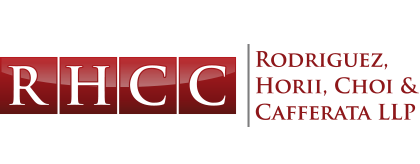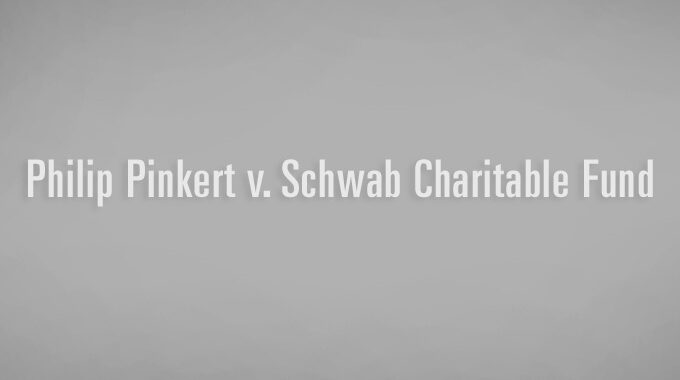Donors Lack Standing to Challenge Action of DAF Sponsor Unless DAF Made a Specific Promise
In Philip Pinkert v. Schwab Charitable Fund, Case No. 20-cv-076657-LB (N.D., Cal.), the court dismissed the lawsuit of a donor to a donor advised fund (“DAF”) for lack of standing. In Pinkert, the donor made contributions to Schwab Charitable Fund (“Schwab”). Pinkert then sued Schwab claiming that the mutual funds that Schwab offered for DAF investments had higher investment fees than Schwab could have obtained using other mutual funds. The donor argued that the higher fees injured his “reputational and expressive interests” in his DAF. The court noted that under the Internal Revenue Code and the DAF documents, donations to a DAF are “irrevocable and unconditional” and “subject to the exclusive legal authority and control of [Schwab] as to their use and distribution.” The court found that the donor lacked any financial interest in the DAF and that the alleged injury to his ability to make larger gifts was not sufficient injury to grant Pinkert standing to sue Schwab. A general legal principle is that a plaintiff cannot sue a defendant absent claim that the defendant injured the plaintiff in some manner.
The court noted that had Schwab made and breached a specific promise to Pinkert, then based on Fairbairn v. Fid. Invs. Charitable Gift Fund, No. 18-cv-04881-JSC (N.D. Cal. Nov. 28, 2018), Pinkert might have had a viable claim. But Pinkert did not allege any specific promise that was breached—Schwab allowed him to advise investment of the DAF among the funds that Schwab said would be available for investment and otherwise consistent with Schwab’s stated policies.
As to any general injury to Schwab or its ability to make charitable gifts, the court said only the Attorney General has standing to bring such a claim.
One other interesting aspect to Pinkert is that the plaintiff and the law firm representing him were attempting to create a claim that could be brought as a class action against Schwab on behalf of all of its DAF donors. The incremental fees among mutual funds for one DAF would be relatively small, but on all Schwab DAFs, could be a large amount. The class action attorneys would receive fees based on the total recovery.
Both Pinkert and Fairbairn indicate that donors may be able to bring claims with respect to a completed irrevocable gift if the charity made some specific promise with respect to the gift that was not honored. Although both Pinkert and Fairbairn involved DAFs, the rule could be applied to any charity. In both cases, the fact that the charities had followed their published policies helped establish that no promises were breached. Charities should remember to review their policies when addressing difficult donor situations or when setting up processes and procedures for accepting gifts to be sure that they are fulfilling promises they may have made to donors.

